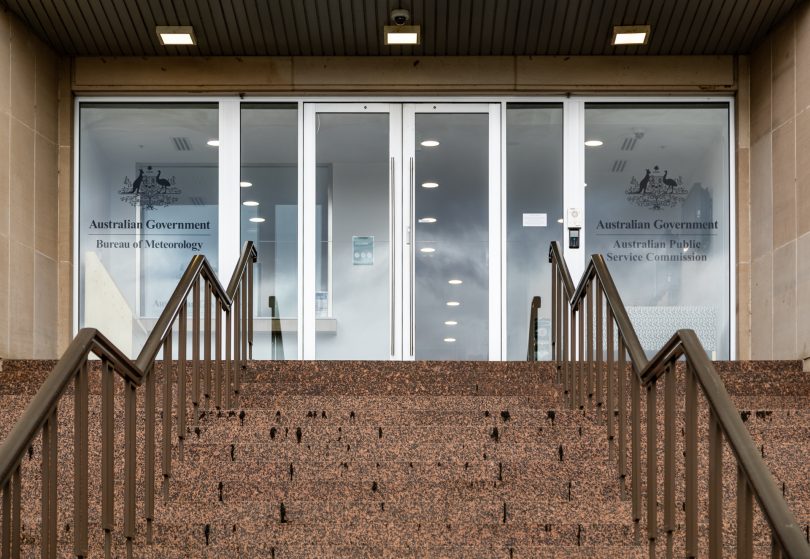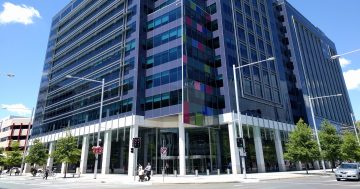
Australian Public Service Commission. Photo: Michelle Kroll.
The Australian Public Service Secretaries Board has outlined its commitment to providing a more flexible workplace, which it says will embrace diversity and meet the expectations of the Australian community.
In a recently published paper, the Secretaries Board said it wants to attract skilled and engaged people to the APS and retain the people who are at the core of the APS’s creativity, professionalism and success.
“The APS strives to be a model employer,” it said. “By embedding flexibility, we have an opportunity to redefine the future of work in our Service.”
The paper, entitled Principles of flexible work in the APS, lays out five key principles that it says will create flexible working solutions that meet the organisation’s needs.
- Flexibility applies to all roles, with different types of flexibility being suitable for different roles,
- Flexibility needs to be mutually beneficial,
- Organisational and team needs frame conversations about individual flexibility arrangements,
- Flexible work arrangements value meaningful and regular face-to-face contact, and
- Flexibility is embedded, modelled and refined.
“The Secretaries Board has endorsed a principles-based approach to flexible work developed by the Secretaries’ Future of Work Sub-Committee,” a 13 April release said.
“Secretaries recognise that flexibility strengthens the APS’ ability to deliver strong outcomes, improves our workforce’s resilience, helps employees balance their work and personal priorities and helps position the APS as an employer of choice.”
While the report is short on detail, the move to a more flexible workplace will likely continue those arrangements that were necessarily put in place during the COVID-19 pandemic, such as options to work from home and greater flexibility in rosters away from the APS’s traditional 9-to-5, Monday-to-Friday work schedule.
But it will be interesting to see how the ‘mutually beneficial’ clause will be enforced, either by demands for increased productivity, deferrals of wage rises or expectations of an employee’s availability over and above the normal work week.
“We encourage staff to be open-minded and purposeful in finding creative flexible working solutions that meet organisation and team needs,” the paper reads.
“Alongside flexible work, we also need to consider improving many other aspects of how we work, including recruiting from diverse national talent pools, mobility, learning and development, performance management, accommodation, technology and more.
“We support our people to be agile, and innovative and to create solutions to overcome barriers.”
The principles were developed under the guidance of Secretary of the Department of Employment and Workplace Relations Natalie James, Secretary of the Department of Industry, Science, Energy and Resources David Fredericks, and APS Commissioner Peter Woolcott, who recently announced his intent to retire after four decades of public service.
The Secretaries Board says the approach was based on “extensive consultation with APS agencies”, and was “informed by research into best practice approaches offered by other Australian and international employers in both the public and private sectors”.
It said that workplace flexibility is an important issue in the current APS service-wide bargaining process: “The principles will be a consideration in negotiation of a common flexibility term for inclusion in all APS enterprise agreements.”
In a written statement to Region, Community and Public Sector Union national secretary Melissa Donnelly said the union expects that flexible work will form a vital part of service-wide enterprise negotiations.
“Since the pandemic, flexible work arrangements and working from home have become a normal part of many people’s working lives, and it is now time for the APS to set the standard for working from home rights and have them locked into enterprise agreements,” she said.
“The current approach is fragmented and inconsistent, which is a source of frustration for employees and managers alike. Employees want to see consistency across roles and across the service, and not have caps unnecessarily restrict what flexibility could look like for them.
“Flexibility promotes inclusivity and will pave the way for the APS to become an employer of choice for women, parents, people with a disability, people with caring responsibilities and people in rural and regional areas,” she added.
“The APS has everything to gain and nothing to lose when it comes to improving its approach to flexible work.”
The next step will see the APS Commission work with the Chief Operating Officer’s Committee to develop guidance materials, resources and training to support the adoption approach to flexible work.
More detail on what the five principles entail can be found here.




















